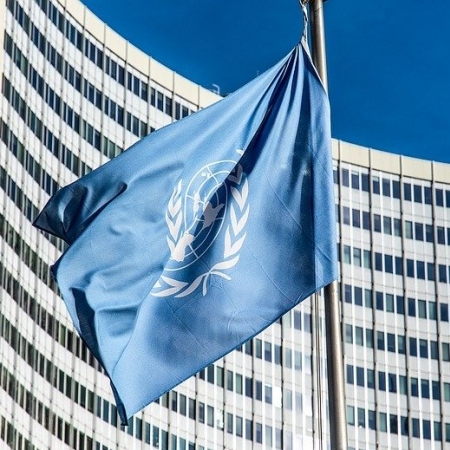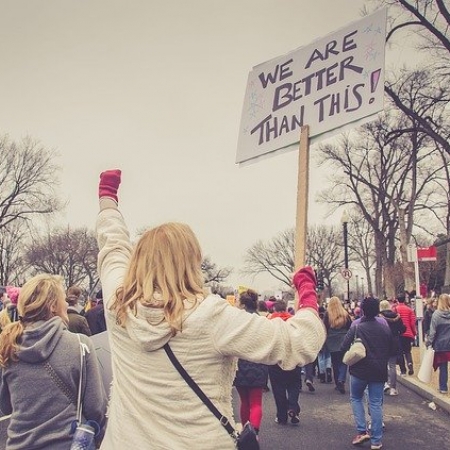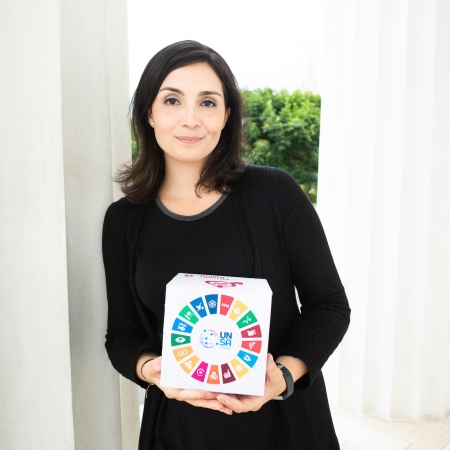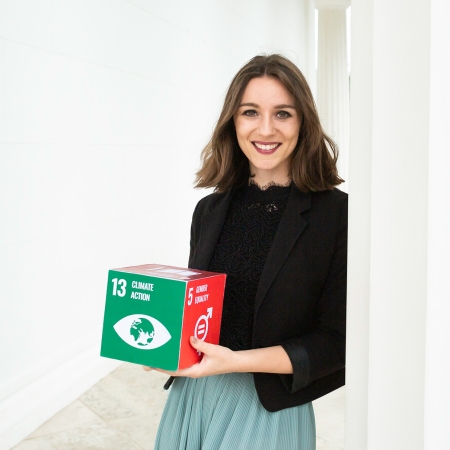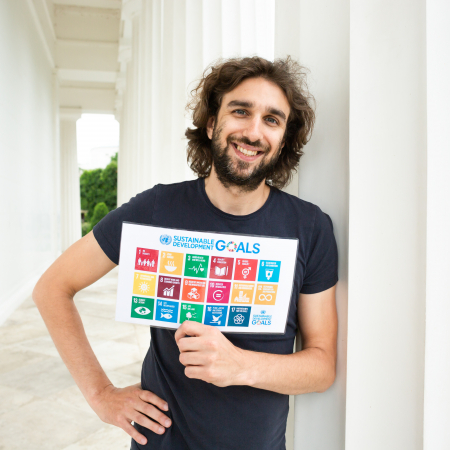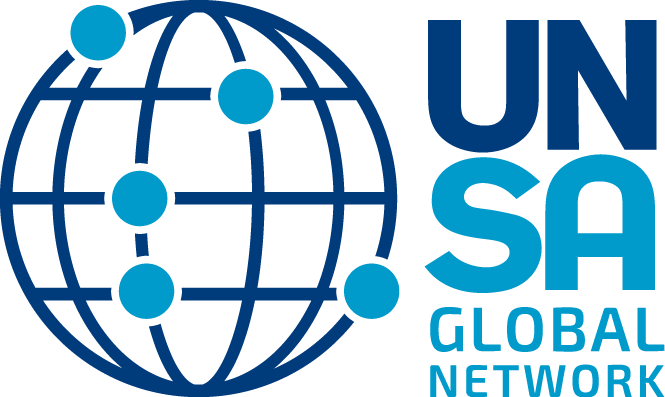
About UNSA
As part of the UNSA Global Network, UNSA Vienna aims at setting new benchmarks with regard to the identification of as well as work on topics and ideas that are critical for the future of the UN system and the implementation of the Sustainable Development Goals (SDGs).
UNSA Vienna aims at promoting the implementation of the SDGs by furthering the work on most commonly overlooked yet important topics and establishing innovative, integrative and solution-oriented approaches to those topics within the UN framework.
News
Activities
: Call for Applications: FEMICIDE Event Coordinator
To support the work of our FEMICIDE Team, we are looking for a FEMICIDE EVENT COORDINATOR.
: Call for Applications: FEMICIDE Editorial Assistant
For supporting the work of the FEMICIDE Team we are looking for an EDITORIAL ASSISTANT.
: Call for Applications: Fundraising Coordinator
For supporting the work of our treasurer and auditors we are looking for a FUNDRAISING COORDINATOR.
Blog
Preface
This paper questions the relationship between datasets on fem(in)icide and highlights the complexities of rendering it comparable across time and spaces. Theoretically, it contributes to the sociology of knowledge as it offers a reflexive critique of the practices that create objectified forms of knowledge. Knowledge is conceived not just as an ‘abstract social “construct” [but], specifically a social product, generated by and embodied in particular forms of work’ (Connell et al. 2017: 24). The role of numbers in the shape of data, statistics or indicators are understood as ‘part and parcel’ of the object of study they seek to describe (Bigo et al. 2019; Bruno et al 2016; Desrosières 2002, Foucault 1968, 1978, Hacking 1980; Uprichard 2012; Ruppert 2019). This means that categories, concepts and patterns transmute along with the numbers used to represent them. The argument is divided into three sections, the first of which explores the theoretical conceptualisations and quantifications of fem(in) icide. It questions to what extent the problems of quantifying fem(in)icide are an epiphenomenon of its variance in definitions. The second section grapples with empirical ‘global’, ‘regional’ and ‘national’ efforts to compare fem(in)icide across time and spaces. By zooming in on Mexico as a case study, the paper highlights the complexities of generating comparable data on fem(in)icide due to distinct differences in context. The danger in reducing fem(in)icide to ‘intimate-femicide’ is highlighted as this leaves certain bodies outside of the ‘global’ logics of quantification. As an alternative, the paper’s final section stresses the need to embrace multiplicity through reflexivity in knowledge production. Given the rapid acceleration of digital technologies and data collection methods, it suggests how future studies could strongly benefit from looking into alternative ways of collecting data on fem(in)icide if our aim is to understand further the contextual particularities of this heinous phenomena.
Preface
Despite numerous harrowing stories covered by the media on a daily basis, it is still a challenge to actually understand the extent of violence against women and girls (VAWG). A vital instrument in the fight of VAWG is reliable and up-to-date information and statistics. In India, these numbers are especially important for an in-depth analysis of the occurrence of this heinous crime across the regions, economic strata and social structures of the country. The need for a femicide watch or observatory was first emphasized on a global platform by the UN Special Rapporteur, Dr. Dubravka Simonovic on 25 November, 2015. (1) Dr. Simonovic focused on how since homicide cases do not include information between the victim and criminal, femicide cases are hidden in female homicide cases.
There is a need for a multidisciplinary national mechanism such as a ‘Femicide Watch’, ‘GenderRelated Killing of Women Watch’ or an ‘Observatory on Femicide’ whose establishment would need a coordinated effort between the State, NGOs, independent human rights institutions, academia, and other stakeholders of this field.(2) Only such an organized manner of data collection and analysis will be able to properly and accurately identify the number of victims of VAWG and the number of femicides occurring periodically. In 1990, Nobel Prize winning economist, Dr. Amartya Sen, claimed that nearly 100 million women were ‘missing’ in the world, with almost 40 million in India alone.(3) In 2011, according to the United Nations Population Fund a record of more than 117 million women were ‘missing’ in South Asia. (4) In December 2006, Rita Banerji initiated ‘The 50 Million Missing Campaign’ to raise awareness about the disappearance of women and girls of India in a span of a century. (5) This disconcerting figure, by Ms. Banerji, is an estimate based on an analysis of three generations, observing the systematic extermination of India’s girls and women through forced abortions and female foeticide, female infanticides, dowry murders and other acts of gender related violence that lead to femicide in India.
Preface
Violence against women, in all its types, explicitly portrays an abuse of human rights. One of the most dangerous problems all around the world is femicide - an act of killing women because of their gender. It not only impairs the individual rights of women, but it also negatively affects the general well-being of a society. In Turkey, femicide is a current socio-cultural and political problem, which culminates day by day into high rates. Despite the juristic and legal regulations which should help to prevent violence against women, femicide in Turkey has still not stopped. Collecting relevant data on femicide is challenging for femicide observatories because the data systems of police and government and also the systems of medical organizations often do not provide satisfactory information about the relationship or (gender-related) motives of victim and perpetrator. Another important aspect is that domestic violence is not seen as a problem for society. (1) All women must stand up for their rights and feel empowered in their decisions in order to fight normative, male-power structures which produce gender biased norms and stereotypes and harm the representation of women. Although women have to fight for gender equality, it is clear that this can only be achieved if empowerment, education, solidarity, participation and activism play a decisive role in all areas of life:
“In order for women to attain equal rights, there is a long struggle ahead of us, which requires perseverance. If we do our best at the moment without any delays to save women’s lives, we can fight for our rights in the future in solidarity with our sisters whose lives we saved.“ (2)
This article aims to present the femicide observatory platform “We Will Stop Femicide Platform” in Turkey and outlines its function, activities, proposed solutions and developed measures. Likewise, the general data of femicide in Turkey will be examined in more detail and an attempt will be made to research different types and definitions.
Take Action
Benefits
for UN Academics:
- visibility, publicity and audience
- networks and platforms
- access to all UNSA target groups
- exchange and interaction
- usage of own work
- inspiration and exposure to new ideas and perspectives
Requirements
for UN Academics:
- open mindedness
- sense of innovation
- solution-orientation
- practical orientation
- openness to dialogue
- interdisciplinarity
- comprehensible use and delivery of knowledge
Ways of Participation
for UN Academics:
- published / journalistic content
- participation and collaboration in events
- mentoring programs
- advice and recommendations
Benefits
for UN Practitioners:
- new communication tools
- access to all UNSA target groups
- exchange and interaction
- channel for access to the latest research findings
- new Ideas and Innovations
- channel for broad and comprehensible communication of UN contents
Requirements
for UN Practitioners:
- open mindedness
- sense of innovation
- solution-orientation
- practical orientation
- openness to dialogue / promoting dialogue
- inclusion / involvement
- transparency
Ways of Participation
for UN Practitioners:
- published / journalistic content
- participation and collaboration in events
- inside knowledge
- mentoring programs
- advice and recommendations
- provision of various facilities
- access to internal UN platforms
Benefits
for Diplomats:
- inspiration and exposure to new ideas and perspectives
- new solutions and approaches
- identification of best practice
- exchange & interaction
- visibility, publicity and audience
- access to all UNSA target groups
- networks and platforms
Requirements
for Diplomats:
- open mindedness
- cooperativeness
- commitment to lead or provide guidance in specific subject area
Ways of Participation
for Diplomats:
- financial Support
- provision of event facilities
- insider knowledge
- transfer of national information
- advice and recommendations
- contact and to UN Practitioners, national civil society, academics, universities, …
Benefits
for Civil Society:
- visibility, publicity and audience
- networks and platforms
- access to all UNSA target groups
- exchange, interaction and support
- inspiration and exposure to new ideas and perspectives
- new solutions and approaches
- identification of best practice
Requirements
for Civil Society:
- profound activism
- openness to dialogue
- open mindedness
- sense of innovation
- solution-orientation
- practical orientation
- analytic skills
Ways of Participation
for Civil Society:
- published / journalistic content
- participation and collaboration in events
- mentoring programs
- advice and recommendations
- practical knowledge
- insight into practical work of the civil society
- establishing contact own network
Benefits
for the Next Generation:
- opportunity to gain professional experience and insight into practical work
- access to all UNSA target groups
- channel for access to the latest research findings
- new Ideas and innovations
- UNSA Community – internal and external exchange
Requirements
for the Next Generation:
- open mindedness
- sense of innovation
- solution-orientation
- practical orientation
- analytic skills
- future-oriented thinking
- commitment and reliability
Ways of Participation
for the Next Generation:
- voluntary work in diverse working areas
- offering new perspectives
- development of new approaches, strategies and digital thinking
Benefits
for Universities:
- inspiration and exposure to new ideas and perspectives
- visibility, publicity and audience
- networks and platforms
- access to all UNSA target groups
- benefit for academics and students
Requirements
for Universities:
- open mindedness
- sense of innovation
- solution-orientation
- practical orientation
- openness to dialogue / promoting dialogue
Ways of Participation
for Universities:
- financial support
- provision of event facilities
- contact to students and academics




